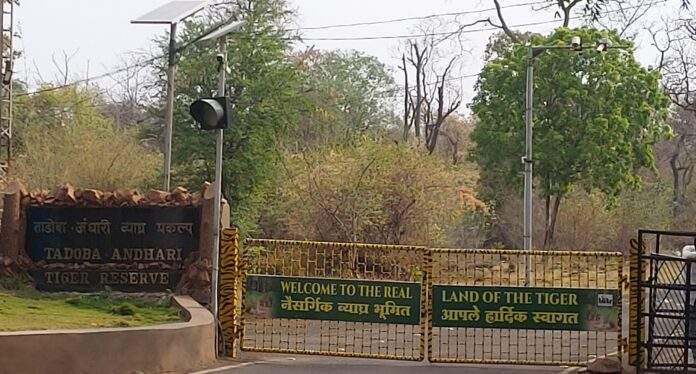
The Bombay High Court has rejected a Civil Revision Application filed by the State, after observing that officials of the forest department wanted to evict a tribal who was living on the borders of the famous Tadoba Tiger Reserve in Maharashtra without following due process. Justice MS Jawalkar noted that the tribal was not given a hearing, and his claim to four hectares of land was rejected without any communication of the order to him.
it is necessary to give Tribals a chance to present evidence and reasoned arguments before any orders are passed. In this specific case, it seems that the defendants (forest officials) want to evict the plaintiff (a tribal person) from the land they have been occupying for a long time, without following proper legal process” observed by the bench.
The court received a Civil Revision Application filed by the Assistant Conservator of Forest under Order VII, Rule 11(d) of the Code of Civil Procedure (CPC), requesting the dismissal of a lawsuit filed by the tribal.
Forest officials claimed that as per Section 26(5) of the Indian Forest Act, if they evict or demolish a construction under the Act, no civil court has jurisdiction over the matter. Therefore, they argued that the lawsuit filed by the tribal was not maintainable.
In his lawsuit, Bhante Gyanjoti Thero requested a declaration and permanent injunction. He claimed that he and the public trust, of which he is the president, have been occupying four hectares of forest land since 1976. After the enactment of the Scheduled Tribes and Other Traditional Forest Dwellers (Recognition of Forest Rights) Act by the Ministry of Law and Justice in 2006, he filed a claim seeking rights to continue living there under the Dwellers Act.
While his previous claim was still pending, Bhante Gyanjoti Thero filed another claim before the Forest Rights Committee in 2022. However, just 13 days later, eviction proceedings were initiated against him, and he filed a lawsuit. The forest department requested the dismissal of the lawsuit, and when the Civil Court refused to provide relief, they approached the High Court.
In the High Court, Advocate AA Dhawas, representing the tribal man, countered the argument presented by the forest department. He cited a government resolution which prohibits the removal of encroachment when a claim is pending before the District Level Committee.
Initially, the court noted that Section 26(1-A) of the Indian Forest Act (IFA) did not apply to forest dwellers whose claims were still pending.
The court observed that while forest officers have the power to evict individuals from reserved forests under Section 26(1-A)(a) of the Forest Act, their powers are subject to the rights conferred under the Dwellers Act in relation to Tribals or Traditional Forest Dwellers. If there is a pending claim in that regard, as per the direction of the State itself, no eviction can be carried out until a decision is made on the claim.
The court also observed that while the forest department claimed that the tribal’s claim was rejected back in 2015, there was no evidence to support this claim.
The court noted that if there is no communication of rejection to the concerned person whose claims are under the Traditional Forest Dwellers Act, he cannot pursue his claim before superior authorities.
The court upheld the decision made by the trial court and rejected the application of the defendants. However, the court acknowledged that there may be a dispute about whether the plaintiff belongs to the category of Traditional Forest Dwellers or not. Therefore, this issue needs to be resolved through a legal process and the plaintiff should be informed about it so that they can take appropriate action.
Click Here To Read/Download Order






